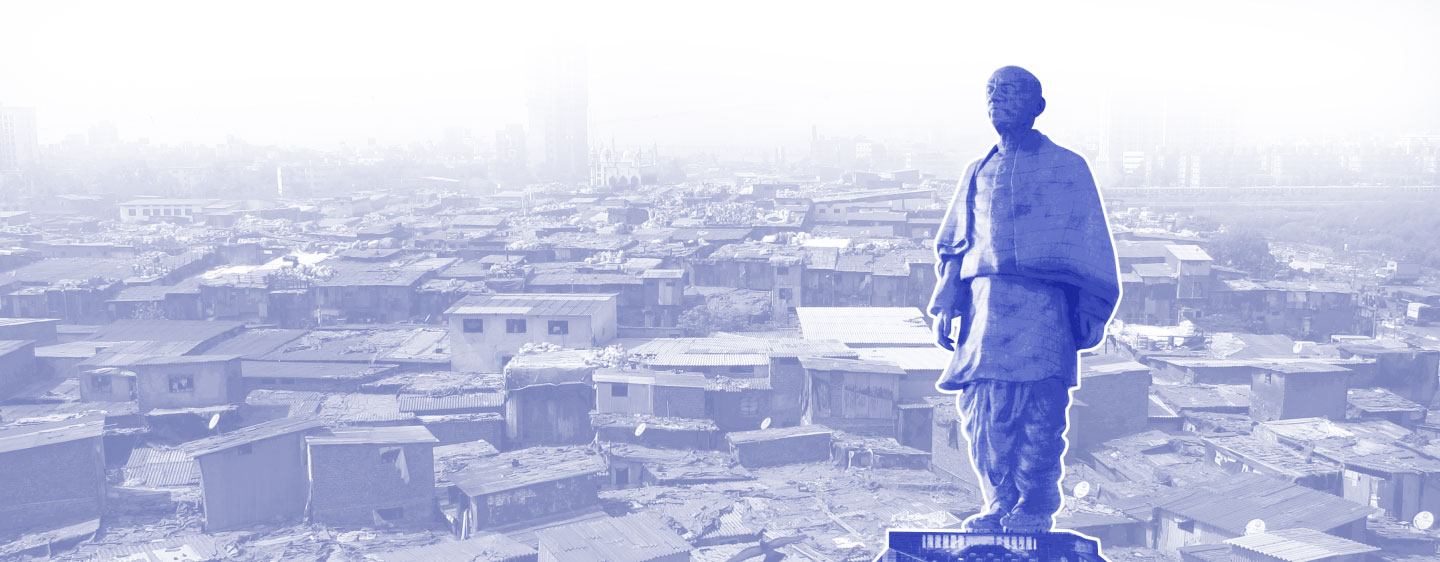Would the very heroes that are being glorified by statues have condoned their expensive deification in the face of the worsening status of our countrymen?
In the aftermath of the boat capsizing on its way to the site of the proposed Chhatrapati Shivaji Maharaj statue in the Arabian Sea, one question that lingers is the benefits that a statue has over the living, breathing people in India.
The project’s cost – initially estimated at ₹279 crores – has ballooned along with its physical scale. In March, the government signed an agreement with the engineering group, Larsen & Toubro to build the first phase of the project at a cost of ₹2713 crores. A second phase, which will include several landing jetties and a heliport, is projected to cost a further ₹1174 crores.
The Statue of Unity modelled after Sardar Vallabhai Patel in Gujarat is scheduled to be unveiled next week. The statue was built on a PPP model, with most of the money raised by the Government of Gujarat. The Government of Gujarat has allotted about ₹700 crores across 2 state budgets, In the 2014-15 Union Budget, ₹200 crores were allocated for the construction of the statue. To accommodate tourists in the remote area, the state government is also constructing a 52-room three-star hotel and two “tent cities” with 250 tents.
These recent expenses on statues makes one wonder what could’ve been done if the same money was being used for the fighting corruption, poverty or strengthening the law and order situation in our country. Our performance on most human development indices is dismal and poorer than our neighbours too. Instead of spending scarce resources on helping real, living people; the government has time and again chosen to spend them on headline-grabbing projects solely for the political mileage they will gain.
India has been ranked at the 103rd position among 119 countries on the Global Hunger Index according to a report prepared by Welthungerhilfe and Concern Worldwide. India is among the 45 countries that have “serious levels of hunger” and is ranked below many neighbouring countries, including China (25), Nepal (72), Myanmar (68), Sri Lanka (67) and Bangladesh (86).
At least one in five Indian children under the age of five have extremely low weight for their height, reflecting acute undernutrition. We only fare better than the war-torn nation of South Sudan in this aspect.
On October 11, the World Bank released the first ‘Human Capital Index’ (HCI) which is designed to place the spotlight on human capital as the key driver of sustainable growth and poverty reduction. Drawing on five key indicators, including under-five mortality rates, quality and quantity of education, adult survival rates and quality of stunting, the index attempts to capture the amount of human capital a child born today could expect to attain by the age of 18.
The HCI awarded India 115th position out of 157 countries ranked. Most of our neighbouring countries, poorer in terms of GDP, inched ahead. Bangladesh is at 106; Myanmar at 107; Nepal at 102; and Sri Lanka at 72.
According to the recently released results of a survey spanning 600 districts, 39.8 percent of teenage girls still defecate in the open. The number rises to 48 percent of the teenage girls for rural areas. The survey also showed that every second teenage girl in India is anaemic and has a low Body Mass Index.
After the resent boat-capsize that took the life of a man, environmentalist Debi Goenka asked why the Maharashtra state government is so keen to spend crores on the project when the existing monuments are in a state of disarray? “Why can’t it repair the monuments that were built by Shivaji?” he asked.
With such glaring and dangerous gaps in the health, education and overall development of our country’s citizens, is it prudent to spend money on extravagant statues? The people who are being commemorated were noble individuals who stood for inclusive and united development of their people. They themselves would have shunned such extravagant displays if it came at the expense of their fellow countrymen.

